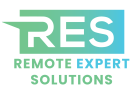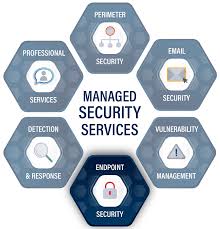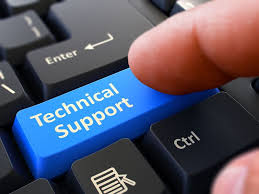Elon Musk is one of the most influential and visionary entrepreneurs of the 21st century. Known for transforming entire industries, Musk has revolutionized the way the world thinks about space travel, electric vehicles, artificial intelligence, and high-speed internet. While his name is often associated with Tesla and SpaceX, many of his ventures are deeply rooted in Information Technology (IT). These businesses are not only reshaping the tech landscape in the United States but also having a global impact.
This article explores Elon Musk’s major IT-related businesses, their role in advancing technology, and how they are influencing industries ranging from telecommunications to transportation, AI, and energy. It also includes key advantages and FAQs to help you understand why Musk’s companies are crucial in the modern digital economy.
The Vision Behind Elon Musk Tech Empire
At the heart of Elon Musk’s business strategy is a desire to solve humanity’s biggest challenges using innovative technologies. His ventures combine cutting-edge software, AI, machine learning, data analytics, and cloud computing to deliver next-generation solutions. Musk doesn’t just invest in IT for profit—he sees it as the engine of progress for human civilization.
From launching satellites to enabling autonomous driving, Elon Musk’s IT-driven companies play a central role in shaping tomorrow’s world.
1. Tesla – Revolutionizing Transportation with AI and Data
Tesla is far more than an electric car company. It is a software-centric, data-driven enterprise that uses information technology at its core. Tesla’s vehicles are equipped with advanced sensors, processors, and software that allow for semi-autonomous driving. The Full Self-Driving (FSD) system, currently in development, utilizes artificial intelligence and real-time data from millions of Tesla cars worldwide to improve driving capabilities.
Tesla’s use of over-the-air software updates is another powerful IT innovation. Just like smartphones, Tesla vehicles receive continuous performance and security improvements through cloud-based updates. This IT model has completely changed the automotive industry and influenced how modern vehicles are designed and maintained.
Tesla’s energy division also uses IT for smart energy management, solar storage, and grid solutions—making it a key player in both clean energy and IT integration.
2. SpaceX – IT in Aerospace and Satellite Communication
SpaceX, Musk’s aerospace company, is also heavily driven by information technology. The company uses advanced software to automate rocket launches, manage payload deployments, and enable reusable rockets like the Falcon 9. These achievements wouldn’t be possible without IT systems controlling navigation, telemetry, and orbital calculations.
Beyond rockets, SpaceX has launched one of the most ambitious IT projects of all time—Starlink. This satellite internet system aims to deliver high-speed broadband to remote and underserved regions around the world. With thousands of low-Earth orbit satellites in place, Starlink is already operational in multiple countries, including across the USA.
Starlink is a breakthrough in global connectivity, powered by robust IT infrastructure including data routing, satellite tracking, cybersecurity, and AI-based traffic management. It promises to redefine how internet services are delivered, especially in rural areas.
3. Neuralink – Bridging the Human Brain and Computers
Neuralink is Musk’s boldest venture into neurotechnology and IT. The company is developing brain-computer interfaces (BCIs) that aim to connect the human brain directly with digital systems. The implications are revolutionary: individuals with neurological disorders could control devices using thought, and humans could one day interact with AI more intuitively.
The Neuralink device uses a chip implanted in the brain to read neural signals, process them with high-powered computing, and send commands to external devices. This level of IT innovation pushes the boundaries of medical science, artificial intelligence, and human-computer interaction.
Neuralink showcases Musk’s commitment to merging biology and technology to enhance the human experience.
4. xAI – Musk’s Artificial Intelligence Company
In 2023, Elon Musk launched xAI, a company dedicated to developing artificial general intelligence (AGI). Unlike narrow AI systems, AGI refers to machines that can understand and perform any intellectual task that a human can. xAI aims to create AI that is safe, explainable, and aligned with human values.
xAI is developing systems that can be integrated into existing platforms, including Tesla’s Autopilot and future AI assistants. It leverages deep learning, neural networks, large language models, and natural language processing—some of the most advanced fields in IT today.
The goal is to compete with other leading AI developers while focusing on transparency and ethical AI development.
5. The Boring Company – Smart Infrastructure Using IT
The Boring Company uses tunnel construction and automation to reduce traffic congestion in urban areas. While this may seem like a civil engineering project, IT plays a vital role in planning, automation, and traffic simulation.
The company’s Loop system, an underground transportation model, relies on data modeling, sensor technology, and real-time traffic control. The integration of IT ensures efficient tunneling, predictive maintenance, and operational safety. The Boring Company demonstrates how IT can be applied to traditional infrastructure in innovative ways.
6. Twitter (Now X) – Tech-Driven Social Media Evolution
After acquiring Twitter, Elon Musk began transforming the platform into “X”—an all-in-one digital platform with features extending beyond social media. He has plans to integrate payment services, AI-powered recommendations, and real-time news aggregation.
The platform uses massive data analytics and machine learning algorithms to personalize user feeds, detect bots, and optimize ad delivery. While still evolving, X is set to become a key player in digital communication and monetization—powered entirely by IT systems and infrastructure.
Strategic Advantages of Elon Musk’s IT Ventures
Elon Musk’s IT-related businesses offer several major advantages for industries, governments, and individuals:
- Global Connectivity: Through Starlink, remote and underserved areas can access high-speed internet, enabling education, business, and telemedicine.
- AI Elon Integration: Tesla and xAI bring artificial intelligence into everyday life, from self-driving cars to intelligent digital assistants.
- Medical Advancements: Neuralink has the potential to restore mobility, treat mental illnesses, and enhance cognitive functions using IT-driven neurotech.
- Smart Infrastructure: The Boring Company demonstrates how IT can modernize urban infrastructure for safer, faster, and greener transportation.
- Faster Innovation: Over-the-air updates and real-time analytics allow Musk’s companies to iterate faster, responding to market needs quickly.
- Autonomy and Automation: Whether in vehicles or rockets, Musk’s businesses maximize automation through high-level IT systems.
Frequently Asked Questions (FAQs)
1. What is Elon Musk IT-focused company?
All of Musk’s companies use IT extensively, but xAI and Neuralink are among the most directly focused on advanced IT and artificial intelligence.
2. How does Tesla use IT?
Tesla uses IT for autonomous driving, real-time data analysis, cloud updates, vehicle diagnostics, and customer interfaces.
3. What is Starlink and how is it related to IT?
Starlink is a satellite-based broadband internet service developed by SpaceX. It relies on massive IT infrastructure including satellite networks, ground stations, and data routing systems.
4. Is Neuralink operational?
Neuralink is still in clinical trial phases, but it has successfully tested brain-computer interfaces in animals and is preparing for human trials.
5. What is the goal of xAI?
xAI aims to develop artificial general intelligence (AGI) that is safe, ethical, and beneficial to humanity.
6. How is Elon Musk changing social media?
Through the acquisition and rebranding of Twitter as X, Musk aims to create a multi-functional platform that integrates payments, AI tools, and real-time data sharing.
7. Do Musk’s companies operate globally?
Yes, Musk’s businesses like Tesla and Starlink operate in multiple countries, and their technologies impact global markets.
8. What role does AI play in Musk’s businesses?
AI is a core component of Tesla’s self-driving technology, Neuralink’s brain interfaces, xAI’s AGI development, and platform optimization in X.
9. How do these IT ventures benefit small businesses or individuals?
High-speed internet access, affordable AI solutions, and automated platforms improve productivity, enable remote work, and expand digital opportunities.
10. Why is Musk focusing so much on IT?
Musk believes that technology, especially IT and AI, is the key to solving global problems—from climate change to brain diseases and digital inclusion.
Conclusion
Elon Musk’s IT-related businesses are redefining what’s possible in the worlds of transportation, space, AI, communication, and medicine. By harnessing the power of data, artificial intelligence, machine learning, and cloud computing, Musk has built an ecosystem that reaches far beyond the USA. His companies solve real-world problems, break technological barriers, and shape the way individuals and industries engage with the digital future.
Whether you’re a small business owner, tech enthusiast, or policy maker, understanding Musk’s IT ventures offers valuable insight into where the world is heading. As these innovations continue to evolve, one thing remains certain—Elon Musk’s influence on the IT world is just beginning.
Contact Us
Admin@remotexpertsolutions.com






